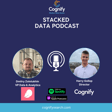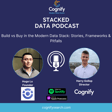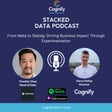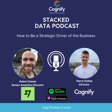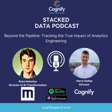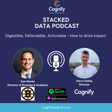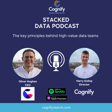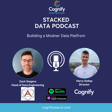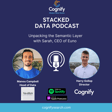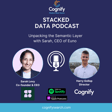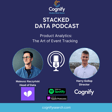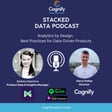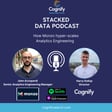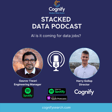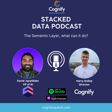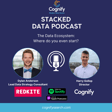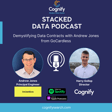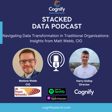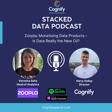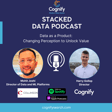
025 - The Rise of the Data Product Manager…
The Rise of the Data Product Manager…
How often have you joined a data team where data is poorly understood by the business, siloed, and churning out tickets with little impact? Or found that the Analytics team doesn’t communicate with Data Engineering, leading to project delays due to missing data?
These common challenges underscore the need for a new role that’s gaining traction: the Data Product Manager. This week on The Stacked Data, I'm joined by Karen Francis, a Data Product Manager at B&Q, and Rianna Kelly a Head of Data at Zeps.
Karen and Rianna have firsthand experience with these issues and many more. They’ve seen how powerful and transformative the role of a Data Product Manager can be. In this episode, they share insightful stories and discuss why this role is crucial for high-performing modern data teams.
We discuss:
- The responsibilities of a Data Product Manager
- The typical challenges they overcome
- How Data Product Managers drive value and efficiency
- Case Studies and Success Stories
- Why more data teams need to adopt this role
Tune in to gain valuable insights and understand why the Data Product Manager is essential for any data-driven organization.
